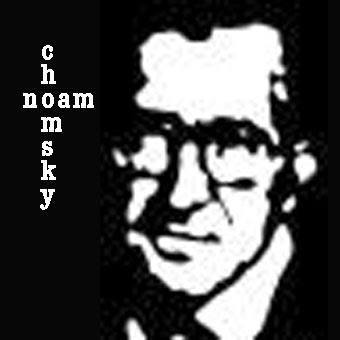
A Controversial, Passionate Writer Who Supports Leftist Causes, Noam Chomsky to vote For Green Party | Democracy, elections, ballots, voter and voting at DC
Noam Chomsky: If I were in a swing state, vote for Obama
From Raw Story:
Chomsky explained last week on the Matthew Filipowicz Show that activists should not spend much time on the “carefully orchestrated electoral extravaganza” with a few exceptions.
“Between the two choices that are presented, there is I think some significant differences,” he said. “If I were a person in a swing state, I’d vote against Romney-Ryan, which means voting for Obama because there is no other choice. I happen to be in a non-swing state, so I can either not vote or — as a probably will — vote for [Green Party candidate] Jill Stein.”
Chomsky also said the national deficit wasn’t a major problem, and was being used as propaganda to hide the issue of joblessness.
“The problem is joblessness, and the problem is very concrete. You don’t have to be a genius to look around the society and say, ‘look, something is going wrong. There is a huge mess of people who want to work, there is an enormous amount of work that has to be done, there are plenty of resources, and for some reason those things can’t be put together.’ That tells you there is something deeply pathological about the general socio-economic system.”
From the Columbia Encyclopedia:
Chomsky, who has taught at the Massachusetts Institute of Technology since 1955, developed a theory of transformational (sometimes called generative or transformational-generative) grammar that revolutionized the scientific study of language. He first set out his abstract analysis of language in his doctoral dissertation (1955) and Syntactic Structures (1957). Instead of starting with minimal sounds, as the structural linguists had done, Chomsky began with the rudimentary or primitive sentence; from this base he developed his argument that innumerable syntactic combinations can be generated by means of a complex series of rules.
According to transformational grammar, every intelligible sentence conforms not only to grammatical rules peculiar to its particular language, but also to “deep structures,” a universal grammar underlying all languages and corresponding to an innate capacity of the human brain. Chomsky and other linguists who built on his work formulated transformational rules, which transform a sentence with a given grammatical structure (e.g., “John saw Mary”) into a sentence with a different grammatical structure but the same essential meaning (“Mary was seen by John”). Transformational linguistics has been influential in psycholinguistics, particularly in the study of language acquisition by children. In the 1990s Chomsky formulated a “Minimalist Program” in an attempt to simplify the symbolic representations of the language facility.
Chomsky is a prolific author whose principal linguistic works after Syntactic Structures include Current Issues in Linguistic Theory (1964), The Sound Pattern of English (with Morris Halle, 1968), Language and Mind (1972), Studies on Semantics in Generative Grammar (1972), and Knowledge of Language (1986). In addition, he has wide-ranging political interests. He was an early and outspoken critic of U.S. involvement in the Vietnam War and has written extensively on many political issues from a generally left-wing point of view.
And don’t forget to take a look at our Green Party page too!
Leave a Reply